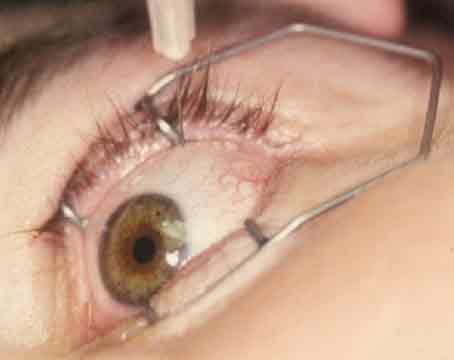A. Yes. The CPT manual contains a section, “Special Ophthalmological Services,” that describes diagnostic tests that go beyond eye exams: “Special ophthalmological services may be reported in addition to the general ophthalmological services or evaluation and management services.” These tests are usually reimbursed separately by most payers.
Q. Does the Center for Medicare Services monitor a physician’s or group’s practice patterns for billable diagnostic tests?
A. CMS does track the frequency of claims paid for all CPT codes for each provider, as well as for provider groups.
Q. Will an abnormal frequency of a particular test(s) be a red flag for an audit?
A. Possibly. CMS data is gathered for the specialty of ophthalmology (18). A subspecialist is compared to all ophthalmologists. Therefore, a glaucoma specialist or a retina specialist is likely to have a higher utilization of certain diagnostic tests than a general ophthalmologist. An abnormal utilization does not necessarily indicate that a physician has done something incorrect, but it can be a red flag.
Q. Who can order a diagnostic test, and what constitutes an order?
A. Physicians order diagnostic tests. It may be a notation as simple as “VF today,” “FA – OD next visit” or as complex as ordering extensive blood chemistry tests at the hospital. It is usually noted as part of the plan in the medical record. The order should include the medical rationale for the test, especially if it is not immediately obvious to a reviewer.
Q. What is meant by the phrase “interpretation and report” contained in many of the CPT code descriptions for tests?
A. The Medicare guidelines for interpretation of diagnostic tests are discussed in the Medicare Claims Processing Manual, Chapter 13, §100: Interpretation of Diagnostic Tests. CMS makes a distinction between a review of a test and an “interpretation and report.”
“Carriers generally distinguish between an ‘interpretation and report’ of an X-ray or an EKG procedure and a ‘review’ of the procedure. A professional component billing based on a review of the findings of these procedures, without a complete, written report similar to that which would be prepared by a specialist in the field, does not meet the conditions for separate payment of the service. This is because the review is already included in the ... E/M payment.”
Simple, brief notations such as “normal” or “abnormal” are construed as a review of the test rather than as an interpretation and report.
Q. What documentation essentials would constitute an “interpretation” and not just a “review” of a diagnostic test?
A. The value of an “interpretation and report” derives from the answers to important questions about the diagnostic test:
• Physician’s order – Why is the test desired?The documentation of the answers would constitute an interpretation.
• Date performed – When was it performed?
• Technician’s initials – Who did it?
• Reliability of the test – Was the test of any value?
• Patient cooperation – Was the patient at fault?
• Test findings – What are the results of the test?
• Assessment, diagnosis – What do the results mean?
• Impact on treatment, prognosis – What’s next?
• Physician’s signature – Who is the physician?
In ophthalmology, tests such as perimetry are much more valuable for making decisions about treatment when there is a series. Does the series demonstrate disease progression? If so, this would also be included in the interpretation.
Q. Where should the interpretation be documented in the patient’s medical record?
A. If the interpretation is written as part of the office visit note, it might appear to be an element of the evaluation and management service. Because of this, it’s better to keep it separate, or differentiate it from the rest of the eye exam by surrounding the notations with a box and a title like “perimetry report.”
Within an electronic medical record, we often find a designated spot to record the physician’s interpretation of a test as a report.
Q. When does the interpretation and report need to be completed?
A. Ideally, the interpretation of a test follows immediately after the technical component is finished. In practice, there may be a delay; however, the delay should not be lengthy or affect patient care.
As a practical alternative, bill the entire test upon completion, after the interpretation is documented in the medical record, since it is not clear what diagnosis would be used for the technical component alone.
Q. Are screening tests covered by third-party payers?
A. As a general rule, diagnostic tests performed as baseline documentation of a healthy eye, or as preventive medicine to screen for potential disease, are not covered by most medical insurance plans, including Medicare. Screening is differentiated from other diagnostic testing by several features:
• Screening is part of a wellness program to check for disease that may otherwise go undetected.
• Screening is not required by medical necessity; it’s optional.
Do not to file claims for screening tests; collect your fee from the patient. Use an Advanced Beneficiary Notice of Noncoverage (CMS-R-131) to notify the beneficiary in advance that the test is being performed as a screening service and that Medicare will not pay for it. For other third-party payers, a Notice of Exclusion from Health Benefits form serves the same purpose.
Q. Are tests reimbursed when performed in the postop period?
A. Yes. Certain services associated with a major procedure are not considered part of the global surgical package and are separately reimbursed. They include medically necessary diagnostic tests.
Q. Are coverage guidelines, e.g., approved diagnosis codes, consistent among Medicare contractors?
A. No. Some contractors publish more policies than others for diagnostic tests and each contractor may publish different coverage guidelines. Check your local Medicare contractor for specifics in your area. REVIEW
Ms. McCune is vice president of the Corcoran Consulting Group. Contact her at DMcCune@corcoranccg.com.




